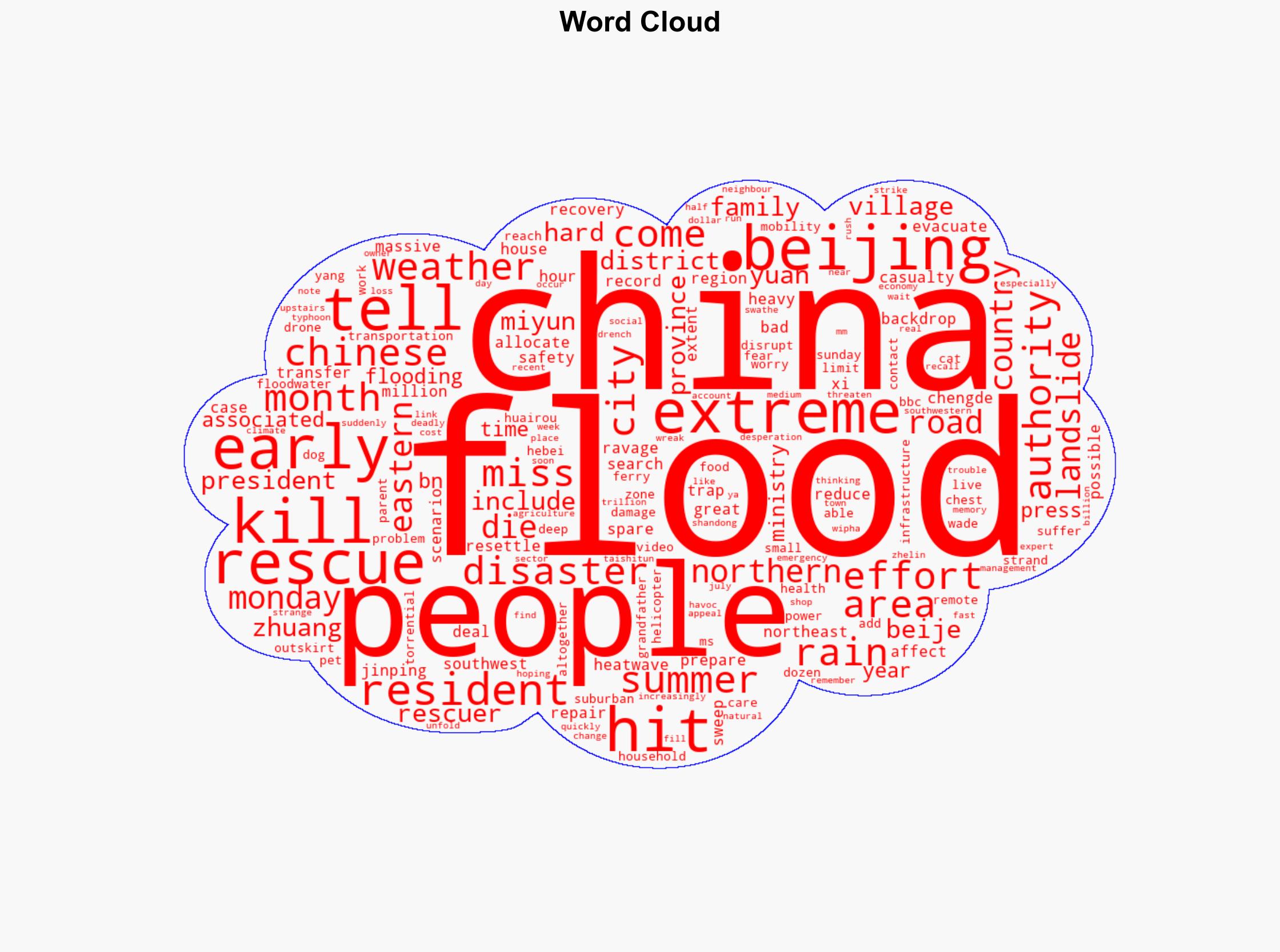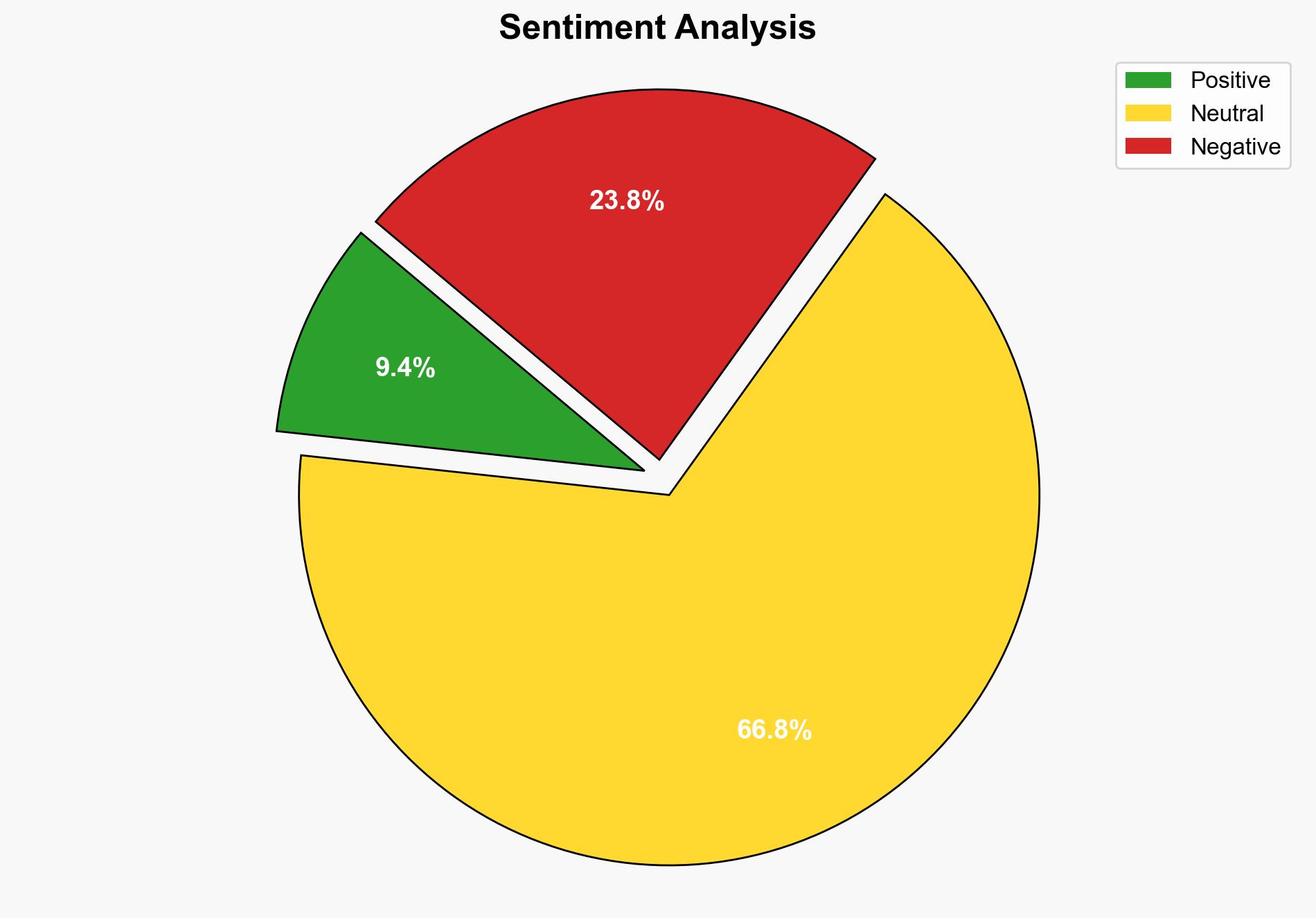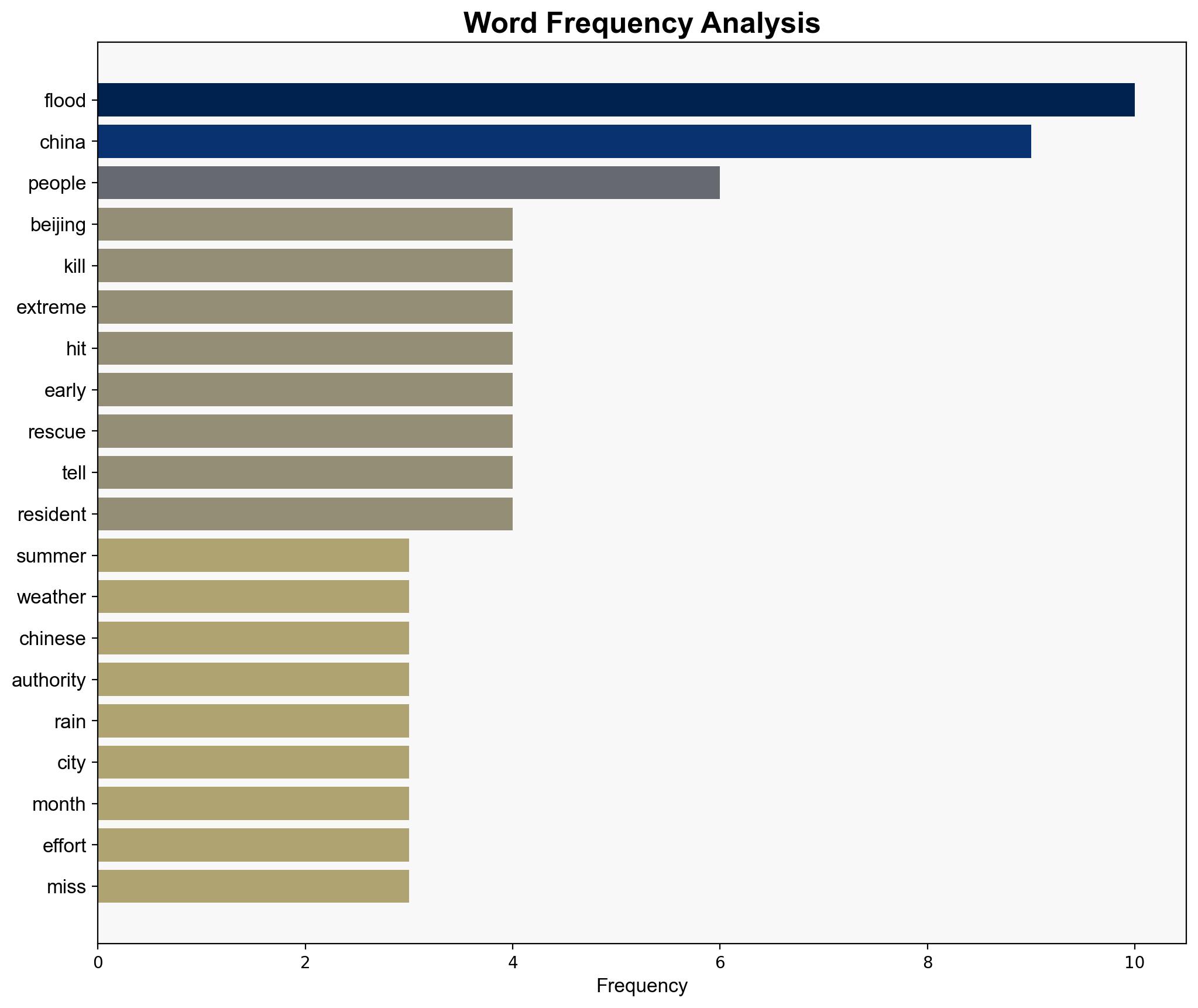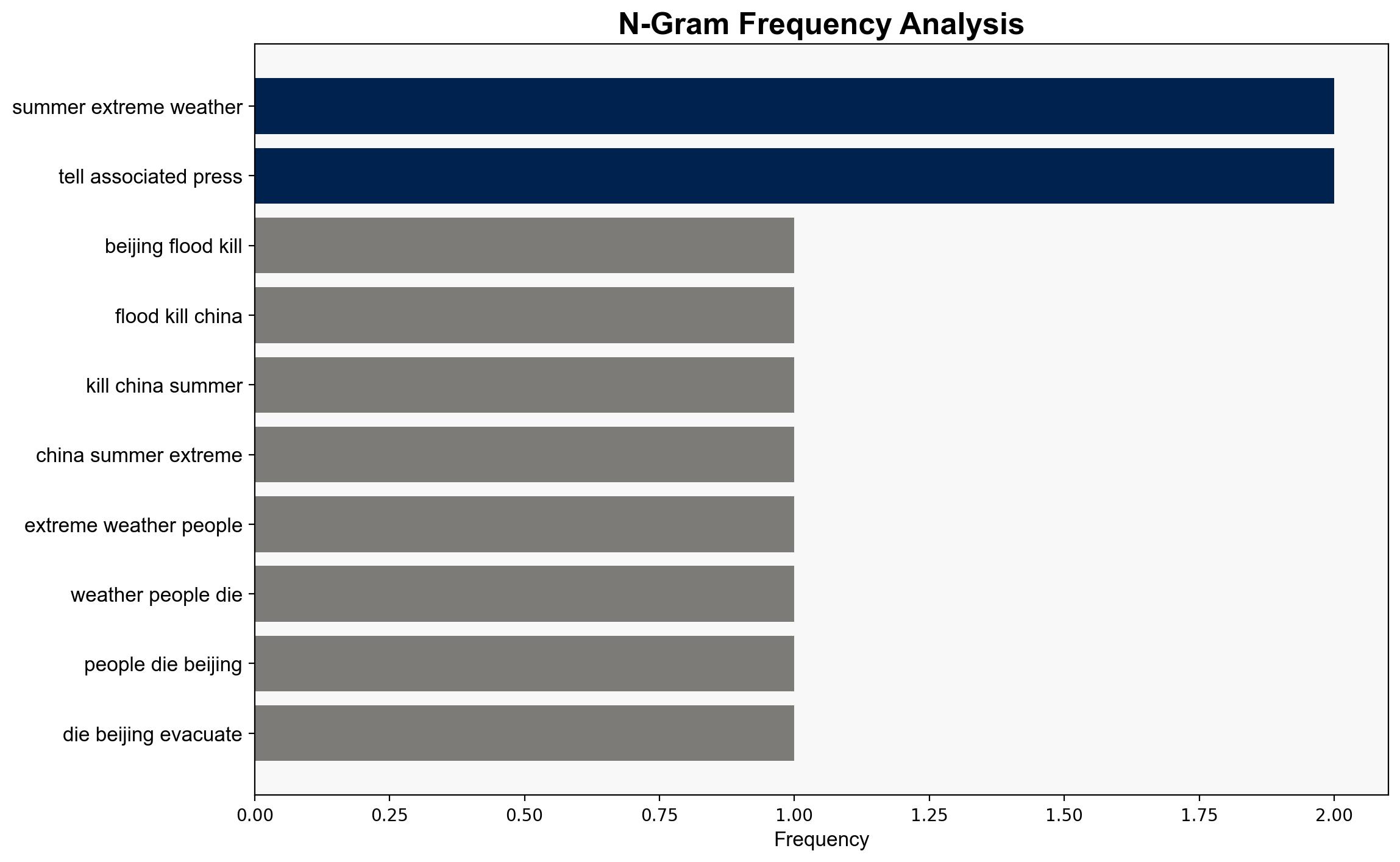Beijing floods kill 30 as China sees summer of extreme weather – BBC News
Published on: 2025-07-29
Intelligence Report: Beijing floods kill 30 as China sees summer of extreme weather – BBC News
1. BLUF (Bottom Line Up Front)
The most supported hypothesis is that the extreme weather events in China, including the recent floods in Beijing, are significantly influenced by climate change, exacerbating existing vulnerabilities in infrastructure and emergency preparedness. Confidence Level: High. Recommended action includes enhancing climate resilience strategies and infrastructure investments to mitigate future risks.
2. Competing Hypotheses
1. **Hypothesis A**: The extreme weather events, including the Beijing floods, are primarily driven by climate change, which is increasing the frequency and intensity of such events globally.
2. **Hypothesis B**: The extreme weather events are part of a natural climate cycle, with current impacts exacerbated by inadequate infrastructure and emergency response systems in China.
Using the Analysis of Competing Hypotheses (ACH) 2.0, Hypothesis A is better supported by the evidence of record heatwaves and the widespread impact of floods across multiple regions, aligning with global climate change patterns.
3. Key Assumptions and Red Flags
– **Assumptions**: Hypothesis A assumes a direct link between climate change and increased extreme weather events. Hypothesis B assumes that current infrastructure inadequacies are the primary exacerbating factor.
– **Red Flags**: Lack of specific data on infrastructure resilience and emergency response effectiveness. Potential underreporting of casualties and economic impacts.
– **Blind Spots**: Insufficient analysis of local governance and resource allocation effectiveness in disaster response.
4. Implications and Strategic Risks
– **Economic Risks**: Significant damage to infrastructure and agriculture, potentially disrupting supply chains and increasing food prices.
– **Geopolitical Risks**: Domestic dissatisfaction with government response could lead to social unrest.
– **Psychological Risks**: Increased public anxiety and loss of confidence in governmental capabilities to manage natural disasters.
– **Cascading Threats**: Potential for further natural disasters in vulnerable regions, straining resources and response capabilities.
5. Recommendations and Outlook
- Enhance climate resilience by investing in robust infrastructure and improving emergency response systems.
- Conduct comprehensive risk assessments to identify vulnerable regions and prioritize resource allocation.
- Scenario Projections:
- Best Case: Improved infrastructure and preparedness reduce future disaster impacts.
- Worst Case: Continued extreme weather events lead to significant economic and social instability.
- Most Likely: Incremental improvements in response and infrastructure mitigate some risks, but challenges persist.
6. Key Individuals and Entities
– President Xi Jinping: Advocated for enhanced rescue efforts and infrastructure recovery.
– Ms. Yang: Resident of Hebei Province, providing personal account of the flood impact.
7. Thematic Tags
national security threats, climate change, disaster preparedness, regional focus





